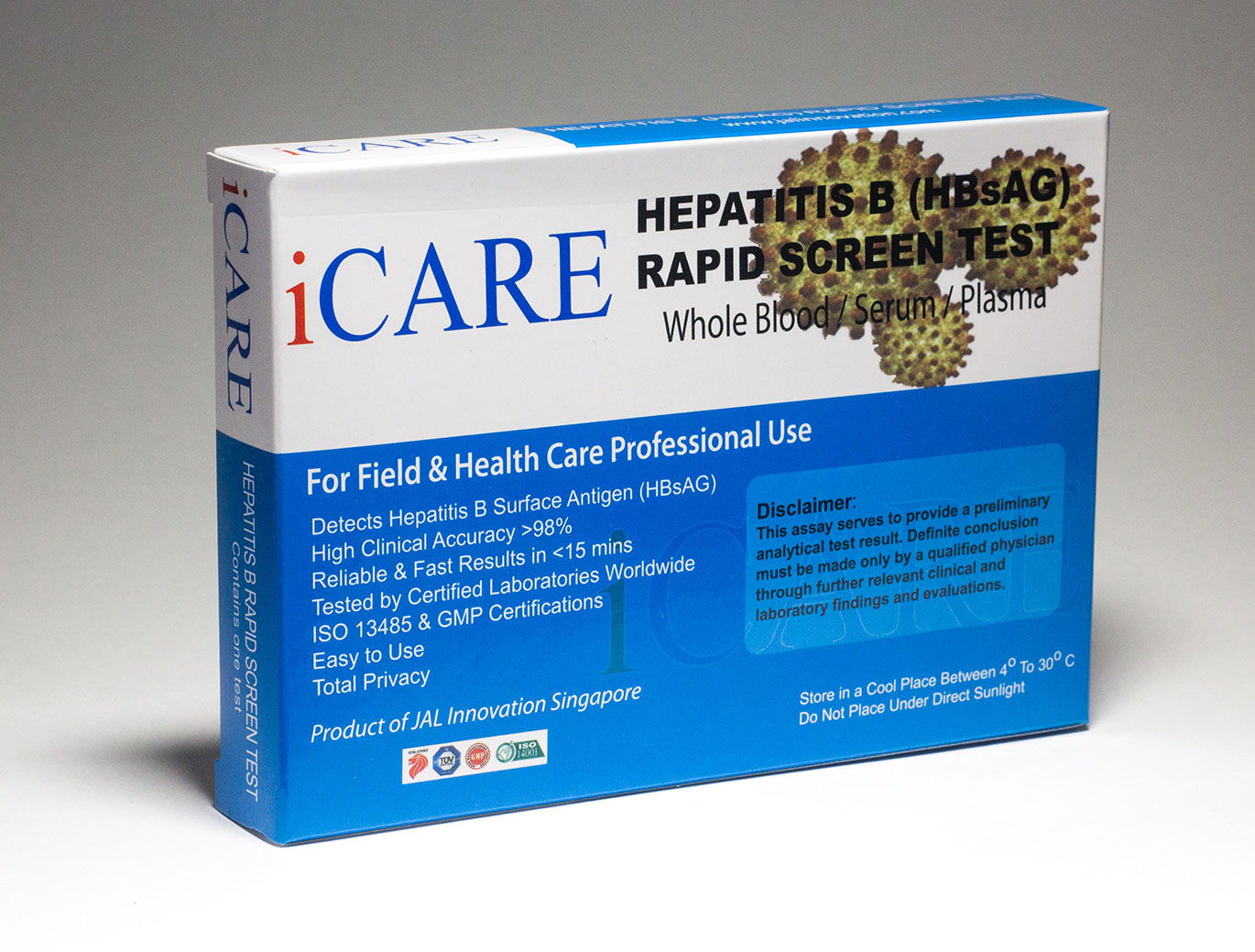Table of Contents
Objective
This article explores how monoclonal antibodies are fundamentally transforming the development and accuracy of next-generation Hepatitis B rapid test diagnostics. Special attention is given to their role in the detection of Hepatitis B surface antigens (HBsAg) and their application in various formats of Hepatitis B testing, including Hepatitis B home test kits.
What are monoclonal antibodies and why are they essential in Hepatitis B testing?
Monoclonal antibodies (mAbs) are laboratory-produced molecules engineered to recognize specific antigens with high affinity. In the context of Hepatitis B testing, these antibodies are targeted to bind to Hepatitis B surface antigens (HBsAg) – a key marker of infection.
Unlike polyclonal antibodies, which are heterogeneous and bind to multiple epitopes, monoclonal antibodies offer specificity and reproducibility. This precision is particularly valuable in Hepatitis B rapid tests, where rapid and accurate results are required from minimal sample volumes, often outside a laboratory setting.
Hepatitis B Rapid Test Kits: How monoclonal antibodies are integrated?
Monoclonal antibodies are immobilized on nitrocellulose membranes in Hepatitis B rapid test kits to capture antigens present in the patient’s sample – typically whole blood, serum or plasma. These are often configured as lateral flow assays, where a visible line indicates the presence of HBsAg.
For example, the iCare Hepatitis B rapid test kit uses monoclonal antibodies to detect HBsAg at concentrations as low as 1 ng/mL. When a patient sample containing HBsAg is added to the test device, it binds with a dye-labeled mAb and migrates across the membrane to form a visible line in the test zone.
What specific Hepatitis B markers do monoclonal antibodies detect in diagnostics?
In Hepatitis B testing, monoclonal antibodies are primarily designed to detect:
- Hepatitis B surface antigen (HBsAg) – the earliest indicator of acute infection.
- Hepatitis B core antigen (HBcAg) – detected in research or advanced laboratory formats, not typically used in rapid testing.
- Antibodies to HBsAg (anti-HBs) – used to determine immunity, especially after vaccination.
The most commonly commercialized format is the HBsAg test kit, which is widely used in Hepatitis Bblood tests and Hepatitis test kits for clinical and home use.
How does the use of monoclonal antibodies enhance home-based Hepatitis B testing?
With the rise of Hepatitis B home test kits, ease of use and accuracy become paramount. Monoclonal antibodies allow these kits to deliver laboratory-level precision in non-clinical settings. Their integration enables consistent manufacturing and a low risk of cross-reactivity, which is vital in unsupervised environments.
These kits typically include all components needed: a test device pre-coated with mAbs, lancets, sample diluent and visual instructions. When used correctly, HBsAg test kits using mAbs can deliver results in as little as 15 minutes with minimal interpretation error.
What are the advantages of monoclonal antibody-based Hepatitis B detection in low-resource settings?
Rapid diagnostic tests (RDTs) employing mAbs are especially beneficial in low-resource or field settings. They:
- Require no refrigeration during short-term transport and storage.
- Deliver quick results without laboratory instruments.
- Utilize finger-prick blood samples, reducing the need for trained phlebotomists.
- Can be deployed during mass screening or outbreak control.
Monoclonal antibodies ensure these Hepatitis B test kits remain highly specific even when exposed to variable conditions, making them ideal for global public health applications.

Hepatitis B Test Kits: How do monoclonal antibodies impact the development of next-generation HBsAg test kits?
Next-generation HBsAg test kits are being developed with improved monoclonal antibody designs that:
- Target more stable and conserved epitopes of the virus.
- Enhance test readability, including improved colorimetric and digital outputs.
- Reduce test time from 15 minutes to under 10 minutes in some prototypes.
- Improve performance in early infection detection through higher affinity mAbs.
The future may also see multiplexed tests where monoclonal antibodies help detect multiple viral markers in a single cartridge, enhancing diagnostic depth.
What are the limitations of monoclonal antibody-based Hepatitis B test kits?
While monoclonal antibodies provide high specificity, they do have limitations:
- They may not detect mutant strains of the virus that alter the epitope structure.
- Some Hepatitis B rapid test kits may produce false negatives in early infections if antigen levels are below detection thresholds.
- Improper storage or expired kits may compromise antibody stability.
Despite these, advancements in mAb engineering continue to reduce such limitations and next-generation kits are now being designed to overcome variant-related detection issues.
How are manufacturers optimizing Hepatitis B test kits with monoclonal antibody improvements?
Hepatitis B test kit manufacturers are investing in:
- High-throughput screening of mAb clones for optimal binding efficiency.
- Dual-antibody sandwich assay formats for increased signal strength.
- Stabilizers in the test matrix to maintain mAb integrity over long shelf lives.
- Portable formats of Hepatitis B blood tests that combine rapid detection with digital interfaces.
These enhancements align with international goals of improving early detection and reducing transmission through accurate, accessible diagnostics.
What regulatory standards guide the use of monoclonal antibodies in Hepatitis B testing kits?
Monoclonal antibody-based Hepatitis B rapid test kits are typically developed in compliance with:
- WHO prequalification for diagnostics
- CE marking for in-vitro diagnostic devices
- Local FDA-equivalent regulatory approvals
Each batch undergoes rigorous sensitivity and specificity testing before release. Lot-to-lot consistency, validated through quality assurance programs, ensures the performance of each Hepatitis test kit remains clinically reliable.
Conclusion
Monoclonal antibodies play a central role in shaping the future of Hepatitis B testing, especially in rapid diagnostic formats. Their unmatched specificity, reproducibility and scalability have made them the backbone of the most advanced Hepatitis B test kits, including HBsAg test kits, Hepatitis B rapid tests and home test kits.
As research advances, monoclonal antibodies continue to redefine what is possible in point-of-care diagnostics, offering high performance even in the most resource-limited settings. The next generation of Hepatitis B rapid test kits will likely offer faster, more precise and more versatile tools for global HBV control – powered by monoclonal antibody innovation.
FAQs About Hepatitis B Rapid Test Kits
The Role of Monoclonal Antibodies in Next-Generation Hepatitis B Rapid Test Diagnostics
What is the role of monoclonal antibodies in Hepatitis B test kits?
They specifically bind to Hepatitis B antigens such as HBsAg, enabling rapid and accurate detection.
Can monoclonal antibody-based Hepatitis B test kits be used at home?
Yes. Many home test kits use monoclonal antibodies for reliable, easy-to-read results.
What makes monoclonal antibodies better than polyclonal antibodies for diagnostics?
Monoclonal antibodies offer higher specificity and consistency, reducing false positives and negatives.
Are Hepatitis B rapid test kits accurate?
When based on monoclonal antibodies and used correctly, rapid test kits can be over 98% accurate.
Do monoclonal antibodies detect all forms of Hepatitis B?
They detect specific antigens like HBsAg, but may miss mutated strains if the epitope is altered.








